
AROUND A.D. 600, migrants from across the southern Andes were drawn to a city just south of Bolivia's Lake Titicaca, the world's highest large lake, at 13,000 feet above sea level. Founded in A.D. 150, Tiwanaku-a name possibly based on the local Aymara people's term meaning "stone in the center"-was one of the earliest cities in the Andes. It eventually stretched across 1.5 square miles of harsh altiplano, or high plain landscape, between the Cordillera Occidental and Oriental ranges of the Andes Mountains. Amid monumental mudbrick and stone buildings were adobe homes where, between 10,000 and 20,000 people once lived, and around which they buried their dead in underground tombs. These new arrivals were likely drawn to this seemingly inhospitable landscape by extravagant sacred festivals held in and around Tiwanaku's monuments.
Esta historia es de la edición July/August 2024 de Archaeology.
Comience su prueba gratuita de Magzter GOLD de 7 días para acceder a miles de historias premium seleccionadas y a más de 9,000 revistas y periódicos.
Ya eres suscriptor ? Conectar
Esta historia es de la edición July/August 2024 de Archaeology.
Comience su prueba gratuita de Magzter GOLD de 7 días para acceder a miles de historias premium seleccionadas y a más de 9,000 revistas y periódicos.
Ya eres suscriptor? Conectar
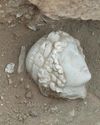
Digs & Discoveries - A Friend For Hercules - Archaeologists discovered a finely carved head depicting Apollo, god of the sun, music, and poetry.
While digging at the crossroads of the two main streets in the ancient city of Philippi in northern Greece, archaeologists discovered a finely carved head depicting Apollo, god of the sun, music, and poetry.
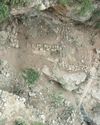
Digs & Discoveries - A Fortress Sanctuary - A sprawling 2,000-year-old fortress in the Zagros Mountains of Iraqi Kurdistan appears to have included a sanctuary dedicated to the ancient Persian water goddess Anahita.
A sprawling 2,000-year-old fortress in the Zagros Mountains of Iraqi Kurdistan appears to have included a sanctuary dedicated to the ancient Persian water goddess Anahita.
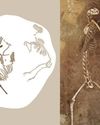
Like Cats And Dogs – Archeologist fund the skeleton of a male Eurasian lynx (Lynx lynx), a notoriously shy creature.
Оn the periphery of Zamárdi, an ancient lakeshore settlement in west-central Hungary, archaeologists uncovered a nearly five-foot-deep beehive-shaped pit with the skeletons of four adult dogs buried in successive shallow layers.
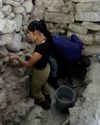
A Dynasty Born In Fire- How an upstart Maya king forged a new social order amid chaos
At the beginning of the Terminal Classic period (ca. A.D. 810-1000), many of the great kingdoms of the southern Maya lowlands-among them Tikal, Palenque, and Calakmul-were being abandoned or collapsing. For many years, scholars have assumed that most, if not all, the other kingdoms across the Maya world must have also been in steep decline.
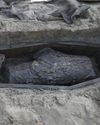
Medical Malfeasance - Archaeologists uncovered two coffins during excavations of a nineteenth-century cemetery in Quebec City that provide evidence of the illicit practice of diverting corpses for the study of human anatomy.
Archaeologists uncovered two coffins during excavations of a nineteenth-century cemetery in Quebec City that provide evidence of the illicit practice of diverting corpses for the study of human anatomy. Starting in 1847, medical students were required to have practical experience studying human anatomy, but legal options to procure cadavers were limited
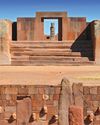
RISE AND FALL OF TIWANAKU
New dating techniques are unraveling the mystery of a sacred Andean city
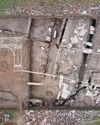
Making a Roman Emperor
A newly discovered monumental arch in Serbia reveals a family's rise to power in the late second century A.D.
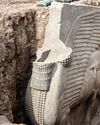
The Assyrian Renaissance
Archaeologists return to Nineveh in northern Iraq, one of the ancient world's grandest imperial capitals
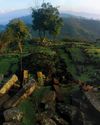
Java's Megalithic Mountain
Across the Indonesian archipelago, people raised immense stones to honor their ancestors
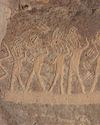
THE SONG IN THE STONE
Located in a desert gorge in southern Peru, Toro Muerto is one of the richest rock art sites in South America. It includes at least 2,600 boulders bearing petroglyphs, many featuring figures known as danzantes who appear to be dancing.